Not Too Late Changing the Climate Story from Despair to Possibility
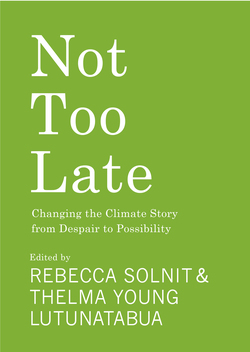
Edited by Rebecca Solnit and Thelma Young Lutunatabua
An energizing case for hope about the climate, from Rebecca Solnit (“the voice of the resistance”—New York Times), climate activist Thelma Young Lutunatabua, and a chorus of voices calling on us to rise to the moment.
Not Too Late is the book for anyone who is despondent, defeatist, or unsure about climate change and seeking answers. As the contributors to this volume make clear, the future will be decided by whether we act in the present—and we must act to counter institutional inertia, fossil fuel interests, and political obduracy.
These dispatches from the climate movement around the world feature the voices of organizers like Guam-based lawyer and writer Julian Aguon; climate scientists like Dr. Jacquelyn Gill and Dr. Edward Carr; poets like Marshall Islands activist Kathy Jetnil-Kijner; and longtime organizers like The Tyranny of Oil author Antonia Juhasz. Guided by Rebecca Solnit’s typical clear-eyed wisdom and enriched by photographs and quotes, Not Too Late leads readers from discouragement to possibilities, from climate despair to climate hope.
Doppelganger: A Trip into the Mirror World
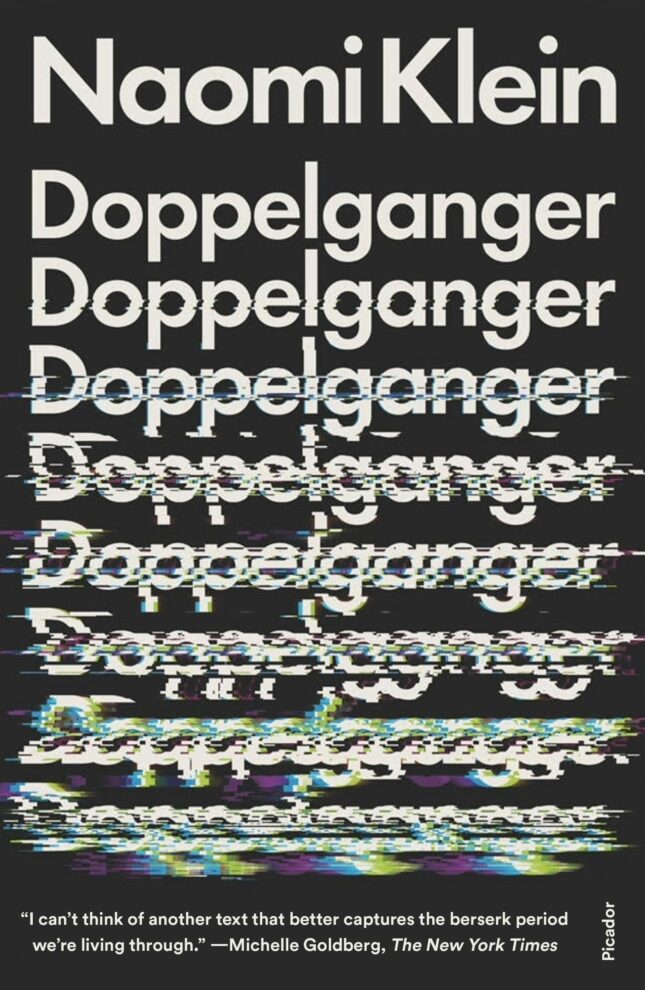
By Naomi Klein
What if you woke up one morning and found you’d acquired another self—a double who was almost you and yet not you at all? What if that double shared many of your preoccupations but, in a twisted, upside-down way, furthered the very causes you’d devoted your life to fighting against?
Not long ago, the celebrated activist and public intellectual Naomi Klein had just such an experience—she was confronted with a doppelganger whose views she found abhorrent but whose name and public persona were sufficiently similar to her own that many people got confused about who was who. Destabilized, she lost her bearings, until she began to understand the experience as one manifestation of a strangeness many of us have come to know but struggle to define: AI-generated text is blurring the line between genuine and spurious communication; New Age wellness entrepreneurs turned anti-vaxxers are scrambling familiar political allegiances of left and right; and liberal democracies are teetering on the edge of absurdist authoritarianism, even as the oceans rise. Under such conditions, reality itself seems to have become unmoored. Is there a cure for our moment of collective vertigo?
Naomi Klein is one of our most trenchant and influential social critics, an essential analyst of what branding, austerity, and climate profiteering have done to our societies and souls. Here she turns her gaze inward to our psychic landscapes, and outward to the possibilities for building hope amid intersecting economic, medical, and political crises. With the assistance of Sigmund Freud, Jordan Peele, Alfred Hitchcock, and bell hooks, among other accomplices, Klein uses wry humor and a keen sense of the ridiculous to face the strange doubles that haunt us—and that have come to feel as intimate and proximate as a warped reflection in the mirror.
Combining comic memoir with chilling reportage and cobweb-clearing analysis, Klein seeks to smash that mirror and chart a path beyond despair. Doppelganger asks: What do we neglect as we polish and perfect our digital reflections? Is it possible to dispose of our doubles and overcome the pathologies of a culture of multiplication? Can we create a politics of collective care and undertake a true reckoning with historical crimes? The result is a revelatory treatment of the way many of us think and feel now—and an intellectual adventure story for our times.
The Shock Doctrine: The Rise of Disaster Capitalism
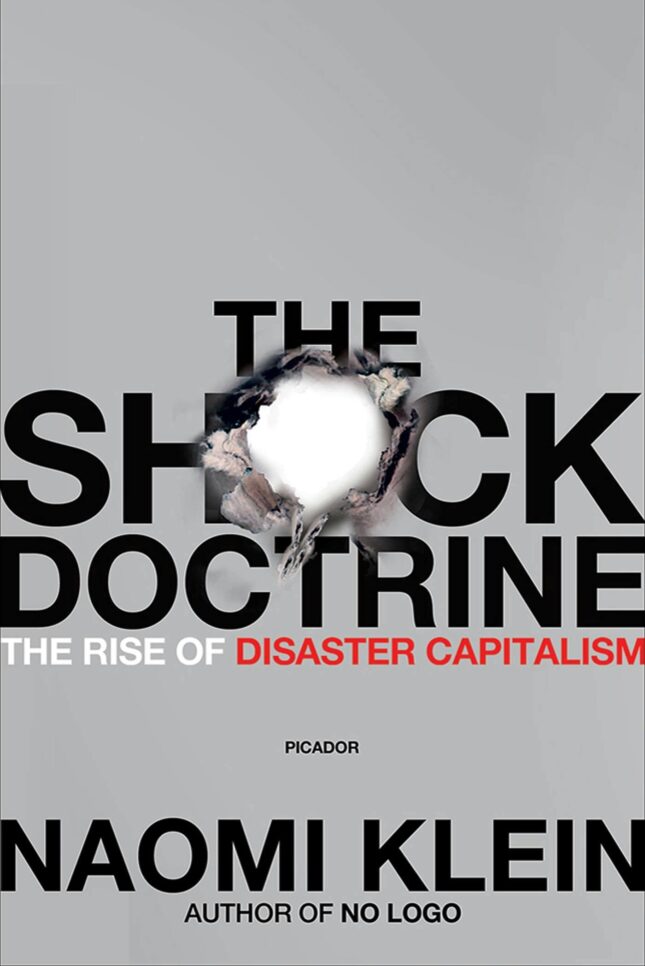
By Naomi Klein
The bestselling author of No Logo shows how the global “free market” has exploited crises and shock for three decades, from Chile to Iraq
In her groundbreaking reporting, Naomi Klein introduced the term “disaster capitalism.” Whether covering Baghdad after the U.S. occupation, Sri Lanka in the wake of the tsunami, or New Orleans post-Katrina, she witnessed something remarkably similar. People still reeling from catastrophe were being hit again, this time with economic “shock treatment,” losing their land and homes to rapid-fire corporate makeovers.
The Shock Doctrine retells the story of the most dominant ideology of our time, Milton Friedman’s free market economic revolution. In contrast to the popular myth of this movement’s peaceful global victory, Klein shows how it has exploited moments of shock and extreme violence in order to implement its economic policies in so many parts of the world from Latin America and Eastern Europe to South Africa, Russia, and Iraq.
At the core of disaster capitalism is the use of cataclysmic events to advance radical privatization combined with the privatization of the disaster response itself. Klein argues that by capitalizing on crises, created by nature or war, the disaster capitalism complex now exists as a booming new economy, and is the violent culmination of a radical economic project that has been incubating for fifty years.
This Changes Everything: Capitalism vs the Climate
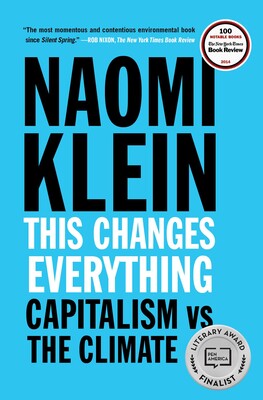
By Naomi Klein
The most important book yet from the author of the international bestseller The Shock Doctrine, a brilliant explanation of why the climate crisis challenges us to abandon the core “free market” ideology of our time, restructure the global economy, and remake our political systems.
In short, either we embrace radical change ourselves or radical changes will be visited upon our physical world. The status quo is no longer an option.
In This Changes Everything Naomi Klein argues that climate change isn’t just another issue to be neatly filed between taxes and health care. It’s an alarm that calls us to fix an economic system that is already failing us in many ways. Klein meticulously builds the case for how massively reducing our greenhouse emissions is our best chance to simultaneously reduce gaping inequalities, re-imagine our broken democracies, and rebuild our gutted local economies. She exposes the ideological desperation of the climate-change deniers, the messianic delusions of the would-be geoengineers, and the tragic defeatism of too many mainstream green initiatives. And she demonstrates precisely why the market has not—and cannot—fix the climate crisis but will instead make things worse, with ever more extreme and ecologically damaging extraction methods, accompanied by rampant disaster capitalism.
Klein argues that the changes to our relationship with nature and one another that are required to respond to the climate crisis humanely should not be viewed as grim penance, but rather as a kind of gift—a catalyst to transform broken economic and cultural priorities and to heal long-festering historical wounds. And she documents the inspiring movements that have already begun this process: communities that are not just refusing to be sites of further fossil fuel extraction but are building the next, regeneration-based economies right now.
Can we pull off these changes in time? Nothing is certain. Nothing except that climate change changes everything. And for a very brief time, the nature of that change is still up to us.
Elite Capture: How the Powerful Took Over Identity Politics (And Everything Else)

By Olúfẹ́mi O. Táíwò
“Identity politics” is everywhere, polarizing discourse from the campaign trail to the classroom and amplifying antagonisms in the media, both online and off. But the compulsively referenced phrase bears little resemblance to the concept as first introduced by the radical Black feminist Combahee River Collective. While the Collective articulated a political viewpoint grounded in their own position as Black lesbians with the explicit aim of building solidarity across lines of difference, identity politics is now frequently weaponized as a means of closing ranks around ever-narrower conceptions of group interests.
But the trouble, Olúfẹ́mi O. Táíwò deftly argues, is not with identity politics itself. Through a substantive engagement with the global Black radical tradition and a critical understanding of racial capitalism, Táíwò identifies the process by which a radical concept can be stripped of its political substance and liberatory potential by becoming the victim of elite capture—deployed by political, social, and economic elites in the service of their own interests.
Táíwò’s crucial intervention both elucidates this complex process and helps us move beyond a binary of “class” vs. “race.” By rejecting elitist identity politics in favor of a constructive politics of radical solidarity, he advances the possibility of organizing across our differences in the urgent struggle for a better world.
Before the Next Bomb Drops: Rising up From Brooklyn to Palestine

By Remi Kanazi
we are the boat / returning to dock / we are the footprints / on the northern trail / we are the iron / coloring the soil / we cannot / be erased
from Refugee”
Remi Kanazi’s poetry presents an unflinching look at the lives of Palestinians under occupation and as refugees scattered across the globe. He captures the Palestinian people’s stubborn refusal to be erased, gives voice to the ongoing struggle for liberation, and explores the meaning of international solidarity.
In this latest collection, Kanazi expands his focus outside the sphere of Palestine and presents pieces examining racism in America, police brutality, US militarism at home and wars abroad, conflict voyeurism, Islamophobia, and a range of other issues.
On Palestine

By Noam Chomsky and Ilan Pappé
Operation Protective Edge, Israel’s most recent assault on Gaza, left thousands of Palestinians dead and cleared the way for another Israeli land grab. The need to stand in solidarity with Palestinians has never been greater. Ilan Pappé and Noam Chomsky, two leading voices in the struggle to liberate Palestine, discuss the road ahead for Palestinians and how the international community can pressure Israel to end its human rights abuses against the people of Palestine. On Palestine is the sequel to their acclaimed book Gaza in Crisis.
Teach Truth: The Struggle for Antiracist Education
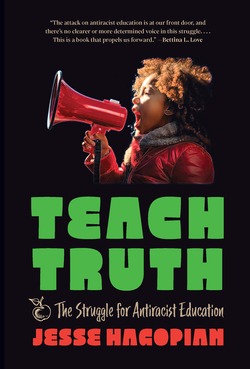
By Jesse Hagopian
In the face of relentless attacks on antiracist education, a much-needed reckoning with the roots of this latest wave of censorship and an urgent call to action to defend education.
In just the last few years, scores of states have introduced or passed legislation that would require teachers to lie to students about structural racism and other forms of oppression. Books have been cut from curricula and pulled from school library shelves. Teachers have been fired and threatened with discipline.
As long-time organizer, writer, and high school teacher Jesse Hagopian argues in Teach Truth, at stake is our democracy, not to mention the annihilation of entire systems of knowledge that challenge the status quo. As Hagopian shows by exploring the origins, philosophy, and manifestations of these attacks, the Right’s effort to regulate knowledge is an attempt to maintain its power over the American capitalist system, now and into the future.
Yet the struggle for a liberatory education has a long history in the United States, from the days when it was illegal for Black people to be literate, to the Civil Rights and Black Power movements, to Black Lives Matter at School today. Teachers, students, and their allies are already building a movement – in the classroom, on campus, and in the streets – to defend antiracist education.
Click, Clack, Moo Cows that Type
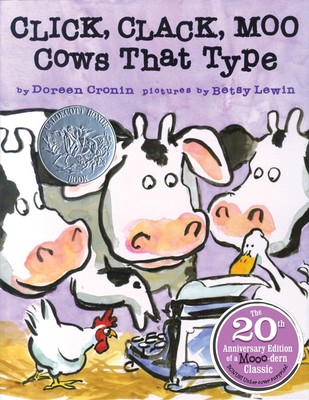
By Doreen Cronin
Illustrated by Betsy Lewin
Farmer Brown has a problem. His cows like to type. All day long he hears:
Click, clack, moo.
Click, clack, moo.
Click, clack, moo.
But Farmer Brown’s problems REALLY begin when his cows start leaving him notes! Come join the fun as a bunch of literate cows turn Farmer Brown’s farm upside-down!
Proverb Masters: Shaping the Civil Rights Movement
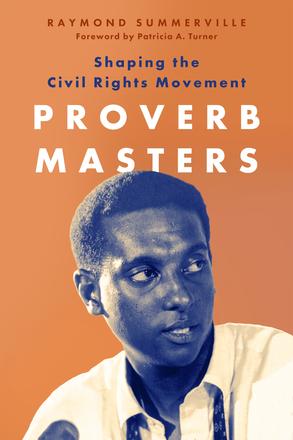
By Raymond Summerville
In Proverb Masters: Shaping the Civil Rights Movement, author Raymond Summerville explores how proverbs and proverbial language played a significant role in the long civil rights era. Proverbs have been used throughout history to share and disseminate brief, powerful statements of truth and philosophical insight. Oftentimes, these sayings have helped unite people in struggles for social justice, serving as rallying cries for just causes. During the civil rights era, proverbs allowed leaders to craft powerful and evocative messages. These statements needed to be made implicitly, as explicit messages were often met with retaliation and even violence.
Looking at the autobiographies, biographies, speeches, diaries, letters, and critical texts of Charles W. Chesnutt, Ida B. Wells, A. Philip Randolph, Bob Dylan, Malcom X, Stokely Carmichael, and Septima Clark, the volume analyzes how these figures employed proverbs in support of social justice causes and in civil rights struggles. Summerville argues that these individuals generated enough print material embedded with proverbs and proverbial language that they should be considered proverb masters. With chapters dedicated to each figure, Summerville reveals their adept uses of this powerful linguistic tool.
